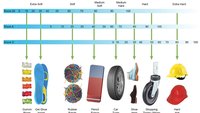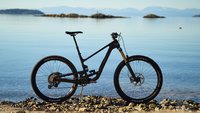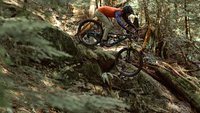Posted By Kevin Proescholdt On May 12, 2017
Rep. Tom McClintock (R-CA) recently introduced a bill in Congress at the behest of a group of mountain biking proponents that would eviscerate the 1964 Wilderness Act and allow bicycles in every Wilderness in the nation.
The bill, HR 1349, was introduced on March 15th on behalf of the mountain biker organization, the Sustainable Trails Coalition (STC). This bill would amend the Wilderness Act to allow bikes, strollers, wheelbarrows, game carts, survey wheels, and measuring wheels in every unit of the National Wilderness Preservation System. In an especially cynical and disingenuous move, the mountain bikers seem to hide behind people with disabilities in their effort to make America’s wildest places merely a playground for cycling: the mountain bikers list “motorized wheelchairs” and “non-motorized wheelchairs” as the first uses to be authorized in Wilderness under their bill (even prior to the listing of “bicycles”), though the 1990 amendments to the Americans with Disabilities Act (ADA) have clearly allowed wheelchairs in designated Wilderness for more than a quarter-century.
The STC had a bill introduced last year in the U.S. Senate by the two Utah Senators, Mike Lee and Orrin Hatch, whose lifetime conservation voting records as compiled by the nonpartisan League of Conservation Voters are just a paltry 9% and 10% respectively. That bill would have opened the Wilderness System to mountain bikes, and also to chainsaws. Fortunately, last year’s bill went nowhere. Unfortunately, the new bill could very well advance in the current anti-wilderness Congress, allied with the new Administration that seems hostile to environmental protection. Rep. McClintock, a member of the House Natural Resources Committee, also chairs that panel’s Subcommittee on Federal Lands. This means he is in a significant position of leadership, and could mean that this year’s mountain bike bill might well advance in Congress. McClintock’s lifetime conservation voting record is even worse than those of the Utah Senators, at a barely-registering 4%.
Last year, anticipating the 2016 Senate bill to open Wilderness to mountain bikes, Wilderness Watch spearheaded a sign-on letter to Congress in opposition to opening up the National Wilderness Preservation System to bikes. It resulted in a total of 114 wilderness-supporting organizations from around the nation signing on, clearly showing that the conservation community is united in its opposition to the mountain bikers’ efforts.
The 1964 Wilderness Act prohibits bicycles in the National Wilderness Preservation System. The law (36 U.S.C. 1131-1136) bans all types of bicycles as well as all other forms of mechanical transportation in designated Wilderness. Section 4(c) of that act states, “[T]here shall be…no use of motor vehicles, motorized equipment or motorboats, no landing of aircraft, no other form of mechanical transport, and no structure or installation within any such area.”
Furthermore, Congress stated the purpose of the Wilderness Act was, in part, to protect these areas from “expanding settlement and growing mechanization….” (emphasis added) (Wilderness Act, Section 2[a].)
In a deft use of falsehoods and “fake news,” the mountain bikers have claimed that the Wilderness Act actually allows bikes in Wilderness. They claim that the U.S. Forest Service put the ban in place in 1984 when the agency explicitly named bicycles as one of the prohibited forms of mechanical transport in Wilderness (the agency’s earlier wilderness regulations, written in 1965, did not specifically name bikes as a prohibited use since mountain bikes had not yet been invented). These false claims (among many others by the STC) ignore the clear language of the Wilderness Act and the regulations of the other three federal agencies that have from the beginning clearly banned bikes from the Wildernesses they administer. For more information, see “5 Lies Being Used to Get Mountain Bikes into Wilderness”*.
The STC arguments also evince an incredibly narrow and selfish view of Wilderness as just a recreation “pie” to be divided up among competing recreation user groups, with seemingly no regard for wildness, wildlife habitat, solitude, or future generations’ desires for truly wild Wilderness.
For over a half century, the Wilderness Act has protected these areas designated by Congress from mechanization and mechanical transport, even if no motors were involved with such activities. This has meant, as Congress intended, that Wildernesses have been kept free from bicycles and other types of machines. Wilderness advocates believe that this protection has served our Nation well, and that the “benefits of an enduring resource of wilderness” (as the Wilderness Act eloquently declares) would be forever lost by allowing mechanized transport in these areas.
WHAT YOU CAN DO: Contact your U.S. Senators and Representative and urge them to oppose HR 1349 and similar bills that would weaken the Wilderness Act: bit.ly/2pzxqHa
Kevin Proescholdt is the conservation director for Wilderness Watch, a national wilderness conservation organization, www.wildernesswatch.org.
Freedom of contract. We sell them guns that kill them; they sell us drugs that kill us.
Last edited by: tungsten on May 13, 2017, 12:30 p.m., edited 2 times in total.







